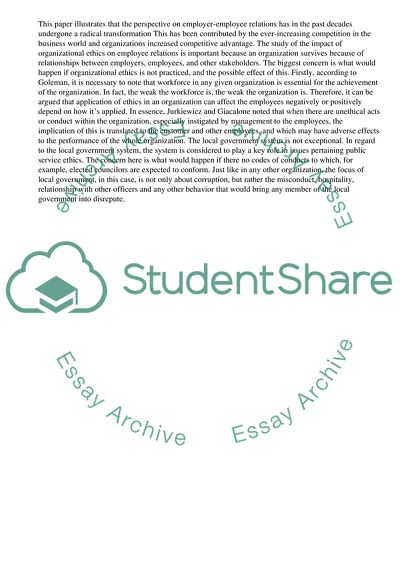Cite this document
(“The Impact of Organizational Ethics on Employee Relations Research Proposal”, n.d.)
Retrieved from https://studentshare.org/management/1589971-the-impact-of-organizational-ethics-on-employee-relationscase-study-of-local-government
Retrieved from https://studentshare.org/management/1589971-the-impact-of-organizational-ethics-on-employee-relationscase-study-of-local-government
(The Impact of Organizational Ethics on Employee Relations Research Proposal)
https://studentshare.org/management/1589971-the-impact-of-organizational-ethics-on-employee-relationscase-study-of-local-government.
https://studentshare.org/management/1589971-the-impact-of-organizational-ethics-on-employee-relationscase-study-of-local-government.
“The Impact of Organizational Ethics on Employee Relations Research Proposal”, n.d. https://studentshare.org/management/1589971-the-impact-of-organizational-ethics-on-employee-relationscase-study-of-local-government.


